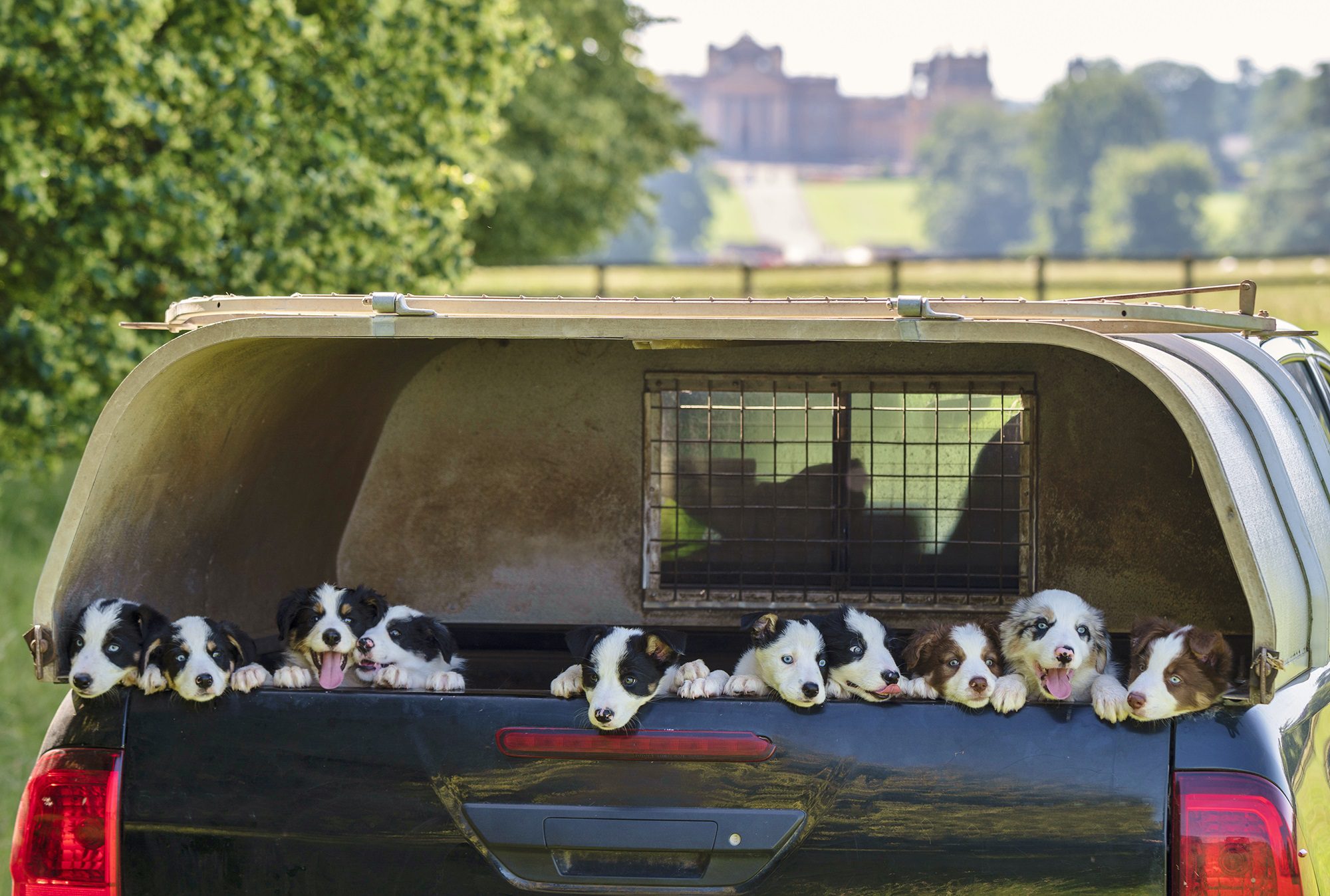A litter of 10 adorable sheepdog puppies line up in the back of a shepherd’s 4×4 at Blenheim Palace. The eight-week-old border collie puppies are the latest generation born at the Oxfordshire UNESCO World Heritage Site.
They’re being looked after by Blenheim’s Farm Manager Charles Gerring who looks after a 1,000 strong flock on the estate. The puppies are fourth-generation descendants of a sheepdog owned by a previous Head Shepherd which was given to Charles when he began working at Blenheim in 1993. Both parents, mum Jazz and dad Ben, are working sheepdogs on the estate and Charles has chosen one of the puppies, named Nell, to join her parents once she has been fully trained. The remaining puppies are either going to working homes or becoming part of active families locally.
“Nell’s dad Ben has proved to be an excellent sheepdog and I have got high hopes she’s going to follow his lead, she’s definitely got the right genes for it. Initially she’ll stay at home with me and try out her herding skills on our flock of chickens in the back garden and I will start to bring her in at weekends to get used to the sheep,” said Charles. “Proper training won’t begin for a few months yet but she’s already showing a keen interest in the sheep and will hopefully pick up a few tips from her parents,” he added.
The grassland of the ‘Capability’ Brown parkland provides near ideal conditions for the extensive flock to graze throughout the year. Blenheim Estate allow their sheep to give birth outdoors, in order to give lambs the best spring grass and nutrients they need.
The Blenheim Estate lambs later than many farms because their Scotch Mule sheep are reared entirely on grass within the estate’s walls, keeping them as naturally healthy as possible.
**ENDS***
Please contact Rachel Leach | RLeach@blenheimestate.com | or Drew Cunliffe | drew@flamingo-marketing.co.uk | for more information.
About Blenheim Estate Land:
At Blenheim Estate Land we know that our land is precious and finite, but cared for properly its benefits can be limitless. Yet today there are fresh challenges like climate change, an aging population and increasing urbanisation. So our approach – spanning a number of projects – needs to be as sophisticated, enduring and holistic as those issues we face. By adopting new methods of valuing our natural capital we can view our land resources as part of an ecosystem. An ecosystem whose benefits extend to the air we all breathe, the green transport solutions that connect our communities, the physical and mental health we enjoy, and the quality of the food we consume. At the pinnacle of our ambitions is the goal to become the first estate to demonstrate carbon-negative land management. Ultimately, these projects form part of Blenheim’s Strategic Purpose; to be the lifeblood of the local economy, to enhance the lives of local people, and to share and protect this place. At Blenheim Estate we believe the bounty from our land is more than the annual harvest, it’s the fundamental source of continued prosperity, renewal and wellbeing. Always growing our legacy.
